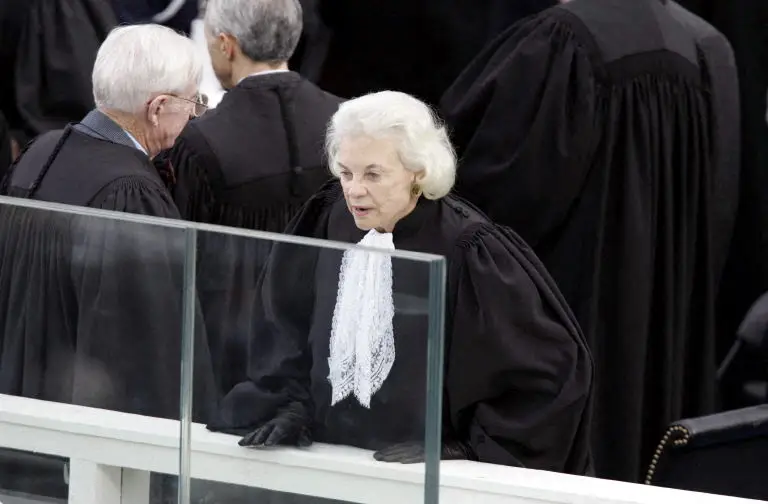US First Female Supreme Court Justice, Sandra Day O’Connor Passes Away at 93
Retired US Supreme Court Justice Sandra Day O’Connor, the trailblazing first woman appointed to the nation’s highest court, passed away at 93 on Friday at her home in Phoenix, Arizona, due to complications related to advanced dementia and respiratory illness, as announced by the court.
Chief Justice John Roberts praised O’Connor’s historic legacy, highlighting her undaunted determination and indisputable ability.
Appointed by President Ronald Reagan in 1981 and confirmed unanimously by the Senate, she served until 2006, playing a pivotal “swing vote” role in a divided court.
Known for her pragmatic approach, O’Connor’s influence extended across various constitutional law areas.
She upheld a woman’s right to abortion in 1992, participated in the conservative majority decision blocking the 2000 Florida presidential election recount, and supported affirmative action in the University of Michigan Law School case.
O’Connor’s impact on cases involving the government’s neutrality towards religion was significant, including the 2005 ruling deeming it unconstitutional for the Ten Commandments to be displayed in courthouses.
Born on March 26, 1930, in El Paso, Texas, O’Connor’s interest in law was sparked during a legal dispute over her family ranch. After attending Stanford Law School, she married John Jay O’Connor in 1952. Following a hiatus to raise a family, she served as Arizona assistant attorney general and held various judicial positions before joining the Supreme Court.
Post-retirement, O’Connor founded an organization educating students about civics through online games.
Diagnosed with dementia in 2018, she expressed gratitude for her life’s blessings in an open letter.
Tributes from former clerks and bipartisan lawmakers poured in, acknowledging O’Connor’s trailblazing legacy. Survived by three sons and six grandchildren, she leaves a lasting impact on American jurisprudence.










